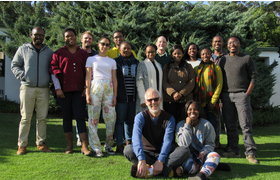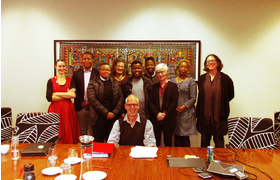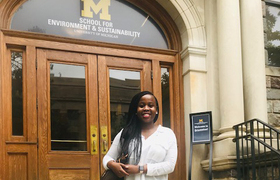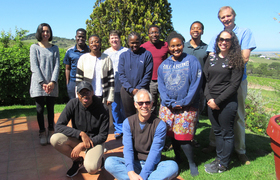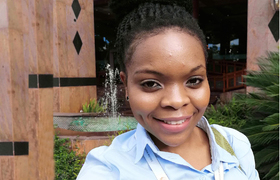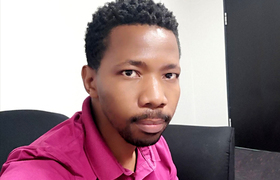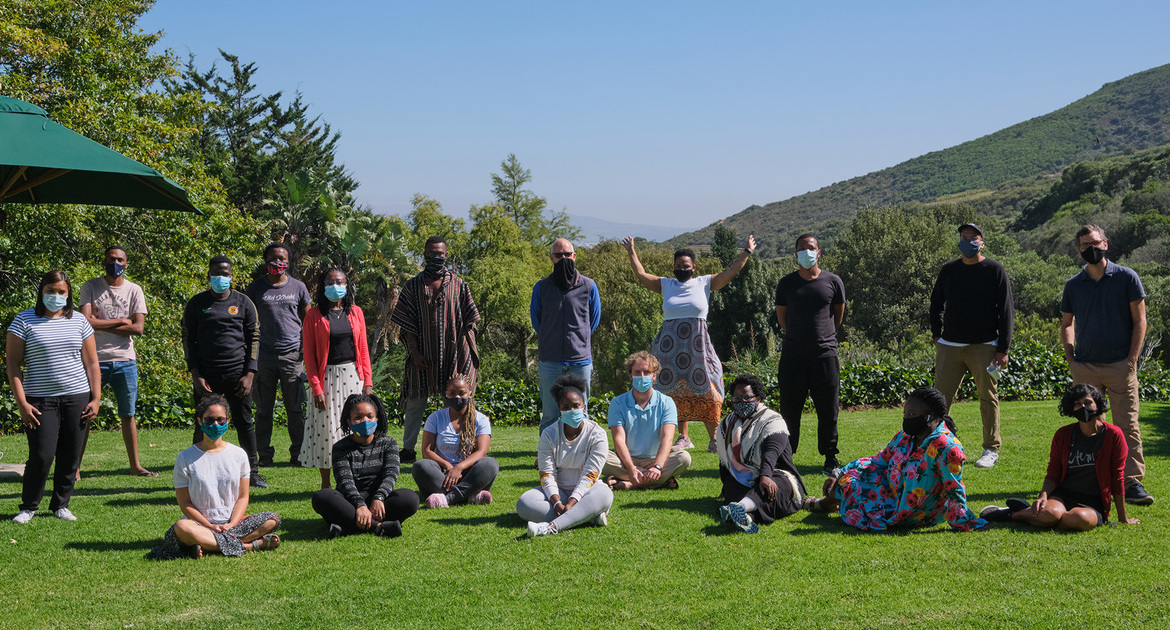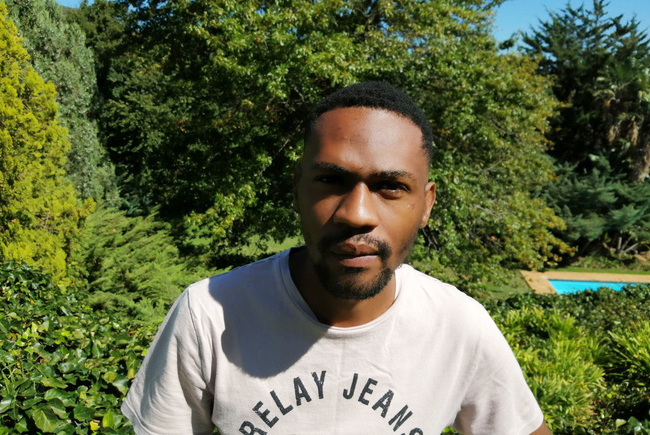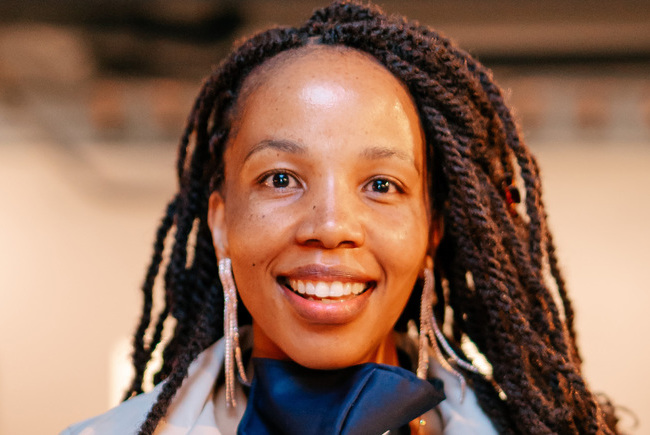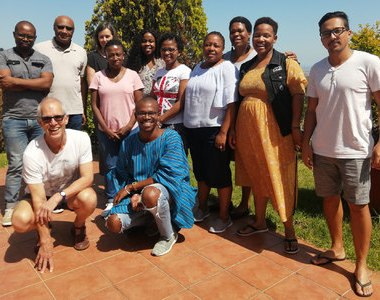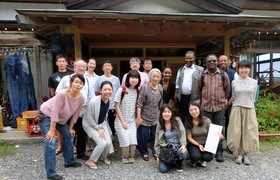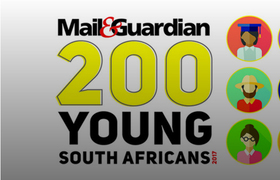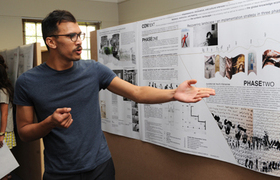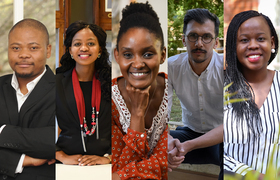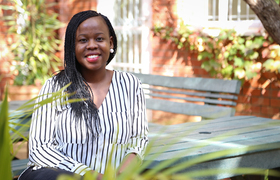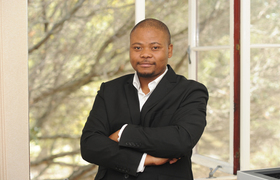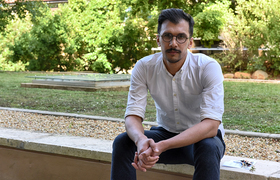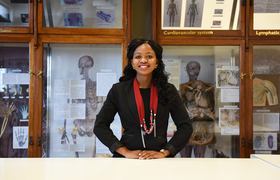Melissa-Rose Abrahams published in Science Translational Medicine
29 April 2020 | Story Melissa-Rose Abrahams. Photo Science Translational Medicine. Read time 3 min.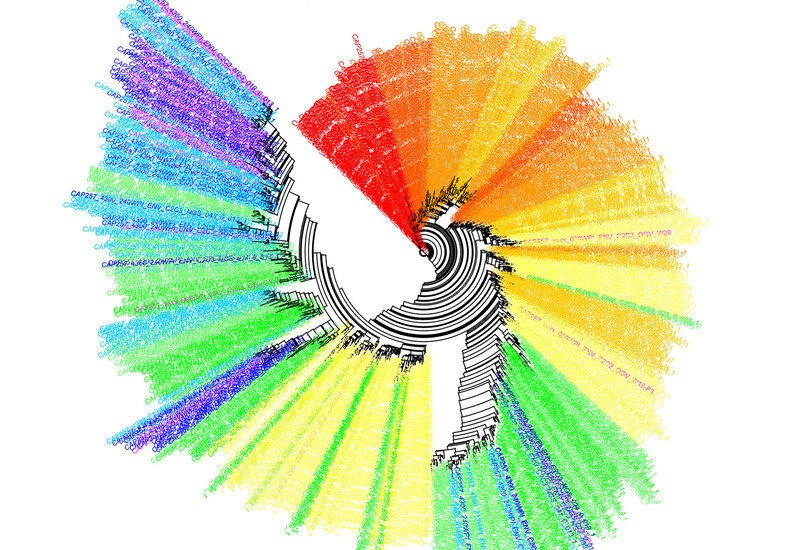
Melissa-Rose Abrahams was the first author on a paper published in October 2019 in the prestigious journal Science Translational Medicine. Her research throws light on one of the greatest barriers to finding a cure for HIV.
Abrahams’ article became the cover article for the journal. The research team included academics from Columbia University, Temple University and the University of North Carolina (all in the United States) and from the Centre for the AIDS Programme of Research in South Africa (CAPRISA) in Durban.
HIV infects CD4 T cells in the blood and tissue. Upon initiation of antiretroviral treatment, a number of infected cells transition to a dormant state where the virus persists but is not targeted by drugs or the immune system. If treatment is stopped, the virus will re-emerge.
The pool of dormant cells is referred to as the latent viral reservoir. The research team undertook to understand in more detail how this reservoir forms by looking at the viral strains present in the blood after many years of treatment.
Key finding
Their key finding was that most of the viral strains in the reservoir resembled those strains present in blood shortly before the initiation of antiretroviral treatment.
“Surprisingly, we found that the majority of the viruses in the reservoir of these women – about 71% – most closely resembled viruses circulating within a year of therapy starting,” said Abrahams.
This led them to the theory that treatment actually creates an environment in which many of the infected cells circulating in the body transition to a dormant state and that a window of opportunity may exist at the time of starting treatment in which these cells can be targeted before going into dormancy.
We found that the majority of the viruses in the reservoir of these women … most closely resembled viruses circulating within a year of therapy starting.”
The finding generated a lot of excitement and was reported in multiple online news articles, on eNCA (by Professor Salim Abdool Karim) and Abrahams was interviewed on SAfm, which she found very daunting.
This work is leading to multiple new studies, including a small clinical trial.
“If we can come up with a biological intervention to reduce the number of infected cells transitioning to latency at the time of initiating treatment, it’s possible we could restrict the establishment of most of this viral reservoir,” she said.
Melissa-Rose Abrahams, Sarah B Joseph, Nigel Garrett, Lynn Tyers, Matthew Moeser, Nancie Archin, Olivia D Council, David Matten, Shuntai Zhou, Deelan Doolabh, Colin Anthony, Nilu Goonetilleke, Salim Abdool Karim, David M Margolis, Sergei Kosakovsky Pond, Carolyn Williamson and Ronald Swanstrom, “The replication-competent HIV-1 latent reservoir is primarily established near the time of therapy initiation”, Science Translational Medicine, 9 Oct 2019, 11, Issue 513, DOI: 10.1126/scitranslmed.aaw5589.
 This work is licensed under a Creative Commons Attribution-NoDerivatives 4.0 International License.
This work is licensed under a Creative Commons Attribution-NoDerivatives 4.0 International License.
Please view the republishing articles page for more information.
New Generation of Academics Programme (nGAP)
UCT has responded energetically to the New Generation of Academics Programme (nGAP), an opportunity provided by the Department of Higher Education (DHET) to build a new generation of black South African academics. The DHET’s 2015 vision document, “Staffing South Africa’s Universities Framework: A comprehensive, transformative approach to developing future generations of academics and building staff capacity”, proposes a suite of initiatives to address the challenge, with nGAP being the major instrument to increase the numbers of black South African academics.
The programme “involves the recruitment of highly capable scholars as new academics, against carefully designed and balanced equity considerations and in light of the disciplinary areas of greatest need”. The nGAP scholars are appointed into permanent positions where from the outset their conditions are customised to ensure their successful induction into the ranks of established academics.
The DHET provides funding over a six-year period to support the appointment of an nGAP lecturer, and their time is protected to provide the best possible opportunity for the completion of a doctorate degree in the shortest possible time. Once the degree is completed, the nGAP lecturer’s teaching commitments are steadily increased until they shoulder a full teaching load.
Since the first advertisement for nGAP posts in 2015, UCT has been awarded 17 nGAP positions: 5 (Phase 1), 4 (Phase 2), 3 (Phase 3) and 5 (Phase 4). These are distributed across all faculties.
UCT’s nGAP scholars operate as a single cohort, managed and coordinated by Dr Robert Morrell. Lecturers meet for quarterly meetings, writing retreats and various capacity-building activities all designed to support the completion of postgraduate qualifications (particularly doctorates) and to develop records of achievement that will testify to their emergence as self-standing, excellent academics. Each lecturer is mentored by a senior scholar, who provides support and guidance on the challenges that routinely face academics.
The nGAP manager sets great store in building the cohesion of the cohort and encouraging the establishment of new UCT networks while producing a collaborative, mutually supportive and embracing work culture.
According to Dr Morrell, “This group of academics will lead UCT in 15 to 20 years’ time ... Their vision of excellence, of being African and South African, of serving a wider community and producing knowledge for the planet, the continent and the country, will power UCT in years to come.”
Newsletters
In the news




